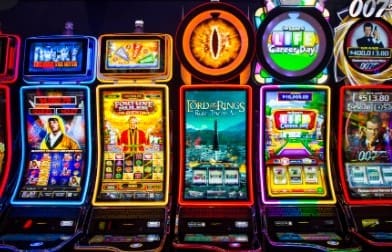Blaise Pascal’s 17th-century French mathematician proves that gambling may not be as much a goal as a means. It can also be a great exercise in mind, such as Pascal’s and Fermat’s case. Fermat is credited with the invention of calculations, now called the theory of probabilities.
One of their contemporaries stated that the theory of probabilities was formed when Pascal and Fermat began playing gambling games.
The two scientists made summaries of the theory of probabilities through correspondence. They obtained the relevant material during their leisure visits to the gambling house. Pascal’s treatise resulted from this correspondence, a “completely new composition about accidental combinations that govern the gambling game.”
Pascal’s work almost eliminates the phantoms associated with luck and chance in gambling games by replacing them with cold statistics calculated using the arithmetic brain. It is difficult to imagine the riot that the invention caused among gamblers. Although we treat the theory of probabilities as trivial, only experts know its core principles. However, everyone can understand its fundamental principle. However, in the time of the French mathematician, all gamblers were obsessed with notions like “divine intention,” “lap of Fortune,” or other things that added mystical tones to their obsession with the game. Pascal strongly opposes this attitude towards the game. “Fluctuations in happiness and luck are subordinated to considerations based upon fairness which aim to give every player what he owes him.”
Pascal made mathematics a fantastic art of foreseeing. It’s more than impressive that, unlike Galileo, who did a lot of tedious experiments with multiple throwing dice, the French scientist didn’t spend a lot of time on these long-winded experiments. Pascal believes that the unique feature of the art and science of mathematic consideration is its ability to generate results from “mind foreseeing” rather than experiments. On intellectual definitions. This is why “preciseness in mathematics” can be combined with the uncertainty of chance. This ambiguity gives our method its odd name: “mathematics based on chance.” Pascal’s invention was followed by the “method of mathematical anticipation.”
Pascal wrote that stoked money no longer belonged to gamesters. Players can lose a lot of money but still get something back. However, most players don’t even know it. It is something virtual. You cannot touch it nor put it in your pocket. So the gambler must have some intellectual ability. This is the “right to expect regular gains a chance can offer according to the initial terms – stakes.”
It may not be so encouraging, however. The dryness of the formulation is negated if you pay attention to the word combination “regular gains.” The expectation of gain is justifiable and reasonable. Another matter is that someone hotter will be more likely to pay attention to “chance” or “can give.” However, it could also be the case that they are wrong.
The French scientist uses his mathematical expectation method to calculate specific “right for gains” values depending on various initial terms. As a result, mathematics has a new definition of right that differs from law and ethics.
“Pascal’s Triangle” or where theory fails to predict probabilities.
Pascal summarized the results of these experiments using the so-called “arithmetic triangle” consisting of numbers. It allows you to predict the likelihood of different gains if you apply it.
“Pascal’s triangle” was more like a magic table of kabbalists to the commoner than a magical Buddhist mandala. The 17th-century illiterate public did not understand the invention. This led to the belief that “Pascal’s triangle” could have helped predict world disasters and other natural disasters. Uneducated gamblers felt almost religious when they saw the theory of probabilities presented in graphic tables and figures and proved by real games.
Although the theory of probabilities should be considered in conjunction with its definition, it is essential not to mix them. “Pascal’s Triangle” does not predict the outcome of a particular deal. Eyeless destiny governs these things, and Pascal never debated them. The theory of probabilities is only helpful for long-term series of chances. Only in this situation can the number of possibilities, series, and progressions that are constant and known in advance be used to influence the decision of a skilled gambler for a specific stake (card, lead, etc.).
Pascal’s invention is more remarkable considering that the famous triangle was discovered by a Muslim mathematician from specific religious orders centuries ago. This information could not have been obtained by European Pascal.
This proves once more that the mathematical patterns of any process remain the same, regardless of space or time. This fact was captivated by Pythagoreans, who emotionally and deeply felt it.
One to thirty-five.
The more frequently faced Pascal with similar problems related to the game that caused controversy in French gambling houses and aristocratic mansions. Finally, one of his aristocratic acquaintances suggested a problem to Blaise.
The problem was dice. The problem was to determine how many throws are theoretically required so that the chance of winning (two sixes) will outweigh all other outcomes. This isn’t as difficult as you might think. It’s easy to see that there are only 36 possible combinations of numbers in the game with two bones, and only one combination gives double six. It is evident to any rational person that a one-time throw has only one chance to win thirty-five.
These simple calculations can make dice-throwers numb, but the joy of the lucky few who throw double six is incredible. They know precisely the devil number and opposite outcomes that could have swayed their luck.


